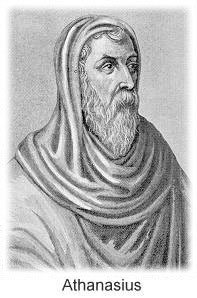LUTHER 1527 ARIANISM


LUTHER 1527
Now Dr. Oecolampadius also ought to prove his “sign of the body” from Scripture. Our Scripture states, “Take, eat; this is my body,” not, “This is a sign of my body.” It is also impossible for him to produce one passage of Scripture where “body” is the same as “sign of the body,” not to mention his obligation to prove it in the case of the Supper. Indeed, as far as proof is concerned, he lies as deep in the ash heap as Karlstadt and Zwingli. Yet they refuse to do God even the honor of admitting that this is true, but boast that no Scripture is brought up against them. However, if they were not such frivolous despisers of the Scriptures, one clear saying from the Scriptures would move them as profoundly as if the whole world were full of Scripture—which it actually is. For as I see it, every single passage makes the world too narrow. They flutter past, however, and think, “This is only a man’s word.” Small wonder that no Scripture constrains them! -Martin Luther
ARIANISM
Arianism associated itself with the secular political power and the court party; it represented the imperio-papal principle, and the time of its prevalence under Constantius was an uninterrupted season of the most arbitrary and violent encroachments of the state upon the rights of the church. Athanasius, on the contrary, who was so often deposed by the emperor, and who uttered himself so boldly respecting Constantius, is the personal representative not only of orthodoxy, but also of the independence of the church with reference to the secular power, and in this respect a precursor of Gregory VII. in his contest with the German imperialism.
HISTORY OF THE CHRISTIAN CHURCH Schaff Volume 3 NICENE AND POST-NICENE CHRISTIANTY A.D. 311-600
(Pages 643-644)

0 Comments:
Post a Comment
<< Home